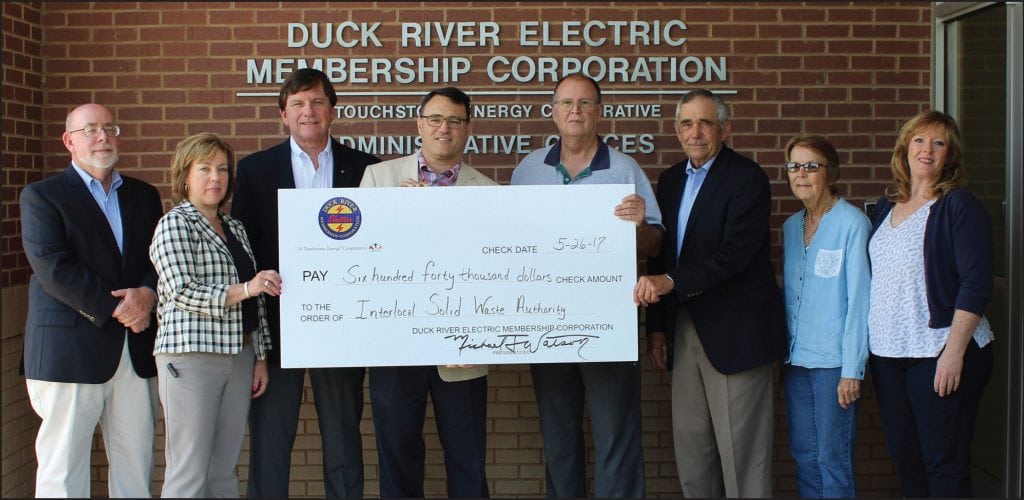Duck River Electric Membership Corporation recently announced the awarding of a zero-interest rural development loan totaling $640,000 to the Interlocal Solid Waste Authority (ISWA) in Franklin County. The funds, provided by the Rural Development office of U.S. Department of Agriculture, will partially finance the purchase of two solid waste transfer stations.
“These transfer stations are used to keep solid waste moving from our communities to landfill locations in Murfreesboro and Cleveland,” explained Wayne Limbaugh, ISWA board treasurer and public works director for the city of Tullahoma. “Owning these transfer stations allows ISWA to ensure the continuation of stable solid waste disposal costs for households and businesses in the participating areas.”
In 1995, ISWA began operating as a public entity for managing solid waste disposal and educating the public about waste reduction. The organization currently oversees solid waste in Bedford, Franklin, Lincoln and Moore counties and the cities of Shelbyville and Tullahoma. County and city governments collect solid waste, and it is then transported to the transfer stations.
ISWA will repay the loan at no interest to DREMC over a 10-year period. Additionally, ISWA will contribute more than $160,000 to the project creating a value to the area of approximately $800,000.
“We want to thank Duck River Electric for helping us obtain this loan,” Limbaugh said. “This helps us keep costs down for the communities that pay for the transfer stations. We realize it was not a simple or quick process obtaining the rural development loan, and we appreciate the people at DREMC for making the effort to help us get this.”
“Our cooperative is committed to the communities we serve and to enhancing the quality of life for our members,” remarked DREMC President and CEO Michael Watson. “Our mission statement expresses this value, and we work hard to turn these words into action. This rural development loan is one more example of how we do this and what makes an electric cooperative different from other utilities. The project was a natural fit for us, and we are proud to be a part of it.”



